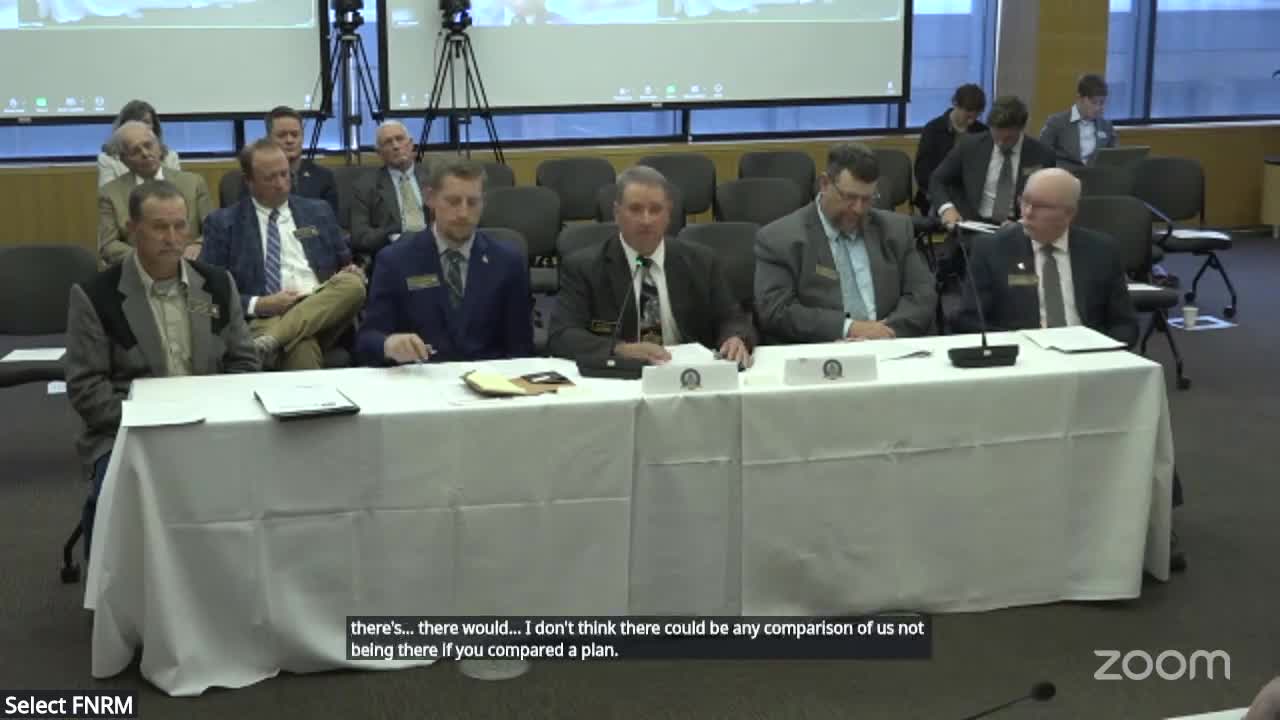LSO briefs committee on NEPA changes; members ask for one-page summary of Speed Act and regulatory shifts
Get AI-powered insights, summaries, and transcripts
Subscribe
Summary
LSO staff reviewed NEPA history and recent rulemaking; committee members requested a one-page summary of the Speed Act/CEQ and agency rule changes and discussed litigation pressures and categorical exclusions.
The Select Federal Natural Resource Management Committee received a detailed memorandum on the National Environmental Policy Act (NEPA) and recent federal regulatory changes Wednesday, and committee members asked legislative staff for a one-page summary of ongoing federal proposals intended to speed NEPA reviews.
Talise Hansen, LSO staff attorney, summarized NEPA’s legal history and recent regulatory shifts. Hansen said NEPA was enacted in 1970 as a procedural law requiring federal agencies to analyze environmental effects of major federal actions and to prepare either an environmental assessment or an environmental impact statement when effects may be significant. She summarized changes to CEQ and agency procedures since 2017, noting the Trump administration’s 2020 CEQ rules, subsequent rollbacks and adjustments under the Biden administration (Phase 1 rules, 2022), and the Builder provisions that Congress adopted within the Fiscal Responsibility Act of 2023.
Hansen told the committee that Phase 2 CEQ rules finalized in 2024 had implemented aspects of the 2023 law but that federal courts and agency actions have since complicated the landscape: she said district and appeals courts questioned CEQ’s rulemaking authority, and CEQ rescinded its NEPA regulations in April 2025. The Department of the Interior later retained a small set of NEPA rules (categorical exclusions, emergency response, and applicant-prepared documents) while moving most NEPA procedures to a departmental handbook.
“NEPA requires an environmental impact statement to be a detailed statement,” Hansen said in introducing the memo prepared for the committee. Her presentation emphasized that federal agencies still must determine whether actions will have “reasonably foreseeable significant” environmental effects and that the content of EISs and EAs — and the procedural steps agencies take — has been a continuing focus of litigation and policy change.
Committee discussion focused on litigation risk, categorical exclusions and whether Congress or agencies should change NEPA’s procedural rules to reduce repetitive litigation. Micah Christensen, natural-resource counsel for the Wyoming County Commissioners Association, and public witnesses including Jim McGavin of the Wyoming Stockgrowers Association reiterated that NEPA has become “a gilded pathway to litigation” for opponents and that fear of litigation often causes agencies to avoid categorical exclusions or more efficient processes.
Committee members asked LSO for a concise brief. Absent objection, members directed LSO to prepare a one‑page summary of the Speed Act (a House proposal associated with Rep. Bruce Westerman that would change NEPA deadlines, scope of review and litigation timelines) and other recent NEPA-related federal actions for co‑chair review and distribution to legislators. Committee co‑chairs also asked members to consider whether the legislature should pursue state-level or multistate strategies to respond to federal regulatory changes.
No committee action to alter state law was taken at the meeting. Committee members discussed options for future work — from advocating a multistate approach to targeted statutory or budgetary proposals — and asked staff to bring back a short, factual summary of the federal proposals and recent court actions to aid legislative consideration.
